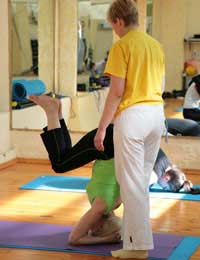Thread/Varicose Veins

Thread varicose veins also known as spider veins or just thread veins rarely cause the pain or pose the kind of health risks their larger cousins true varicose veins do. Still thread veins can be embarrassing and unsightly for those that suffer from them. Thread varicose veins or spider veins are those thin blue “spidery” lines that show up seemingly out of nowhere on the face, nose, and most particularly the legs. Whether you refer to them as spider veins, thread veins, or thread varicose veins, they are all the same condition. Small blood vessels just below the skin’s surface become enlarged to the point that they become visible beneath the skin. Thread veins may appear blue, purple, or slightly reddish. The may branch out like the limbs of a tree.
What Causes Thread Veins?
Thread veins can be caused by a number of factors, unlike true varicose veins spider veins can be caused by things like sun exposure, hormonal changes that come with menopause, and hereditary factors. Thread veins are related to varicose veins in that they can be caused by venous insufficiency much like varicose veins. Often the thread veins, which can accompany varicose veins, can be cased by the varicose veins themselves. Veins carry blood from the legs back to the heart. Veins have a one-way valve that keeps the blood flowing in the right direction. As humans we spend a fair amount of time standing and walking upright. Blood trying to overcome the forces of gravity may flow back against the one-way valve and pool or collect in the veins. This back-flow is what causes the swelling and bulging of varicose veins. These swollen veins in turn can put pressure on the smaller capillaries nearer the skin’s surface and cause the appearance of thread veins, Thread veins can become apparent even without the obvious outward appearance of larger varicose veins.Pregnancy can also cause thread veins, not only because of the hormonal changes brought on by pregnancy, but the additional weight and pressure that is put on the legs. So too can obesity lead to thread veins.
Thread veins are most common in the legs, but they do appear in other places. The next most common place for thread veins to make their unsightly appearance is unfortunately the face. When thread veins do appear on the face, they are most likely the result of a condition called Rosacea. Rosacea is a quite common condition among the UK population affecting 1 in 10 women between the ages of 30-50. Those with fair skin and those who are prone to blushing easily are more likely to have Rosacea.
Treatments for Thread Veins
While thread veins rarely are cause for medical concern, from a cosmetic stand point they can be embarrassing. Thread veins can be prevalent on women as young as in their mid 20’s. Some of these women are of the mistaken impression that they can cover up thread veins by getting a deep tan while sunbathing- but don’t! Sun exposure can actually make thread veins more apparent. There are currently two highly effective treatments for thread veins.Sclerotherapy – Sclerotherapy has been the accepted practice for removing unwanted thread and spider veins for years. A doctor injects an irritant directly into the offending vein, which cause its wall to collapse and the vein to disappear.
Laser Treatments – A newer technique for treating spider veins is the use of lasers such as pulsed lasers, also called Endovenous Laser Treatment (EVLT). EVLT is highly effective in treating thread varicose veins, but it is a relatively new procedure and not practiced in all parts of the UK.
As with most skin disorders, the best treatment for thread veins is trying to avoid getting them. You can minimize the risk of developing thread varicose veins by:
- Regular exercise of the legs
- Maintaining healthy weight
- Not standing or sitting in one position for extended periods of time
- Yoga
- Wearing support hose
- Keeping legs elevated when lying down
Business Energy With a Difference
If you are looking for business energy or need advanced solutions like remote energy monitoring, new supplies, downgrading or upgrading capacity, have a no obligation chat with Purely Energy.
To find our more get in touch here. or call 0161 521 3400.








